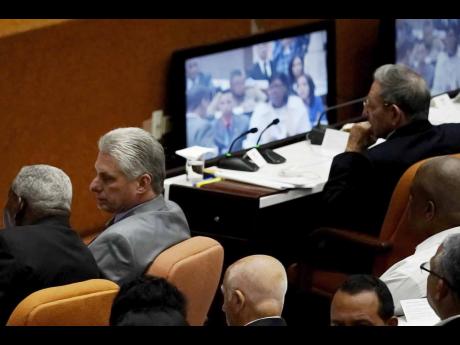Miguel Diaz - Canel selected as next president of Cuba
Cuba on Wednesday selected 57-year-old First Vice-President Miguel Mario Diaz-Canel Bermudez as sole candidate to succeed Ra?l Castro as president of Cuba, the centrepiece of an effort to ensure that the country's single-party system outlasts the ageing revolutionaries who created it.
The virtually certain unanimous approval of the National Assembly will install someone from outside the Castro family in the country's highest government office for the first time in nearly six decades.
The 604 assembly members were sworn in - a 605th was absent - then voted for the president and vice-president of the legislative body itself, among other leaders. The results of the votes are expected to be officially announced today, Thursday.
As in Cuba's legislative elections, all of the leaders being voted in are selected by a government-appointed com-mission. Ballots offer only the option of approving or disapproving the official candidate. Candidates generally receive more than 90 per cent of the votes in their favour.
The 86-year-old Castro will remain head of the Communist Party. As a result, he is almost certain to remain the most powerful person in Cuba for the time being. His departure from the presidency is nonetheless a symbolically charged moment for a country accustomed to 60 years of absolute rule first by revolutionary leader Fidel Castro and, for the last decade, his younger brother.
Nominated as new first vice-president was Salvador Valdes Mesa, a 72-year-old Afro-Cuban former union official who has held a long series of high posts in the Cuban government. The government's official Candidacy Commission also nominated another five vice-presidents of the Council of State, Cuba's highest government body. Only one of the five, 85-year-old Ramiro Valdez, was among the revolutionaries who fought with the Castros in the eastern Sierra Maestra mountains.
Until March, Diaz-Canel had said nothing to the Cuban people about the type of president he would be.
With his public comments in March, many Cubans got a glimpse of him as a flesh-pressing local politician, an image familiar to residents of the central province where he was born and spent nine years in a role akin to a governor.
AP

